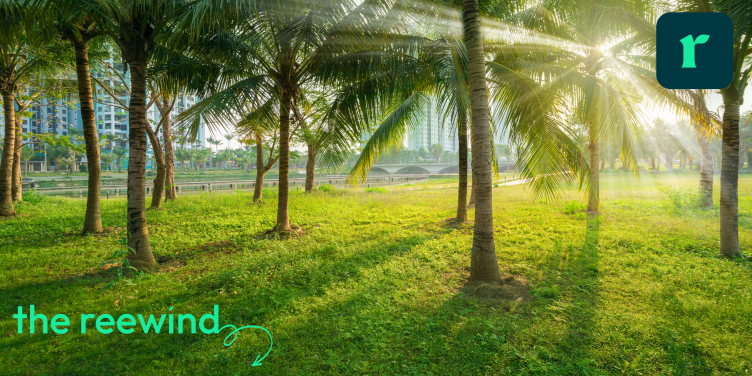
Our Top Stories
The first app of its kind: The Grocer reports on the launch of the Reewild app, which provides users with the carbon footprint of millions of products, recipes, and ingredients, which can be accessed via an in-app search or scanning barcodes. Reewild CEO Freddie Lintell said “We’re creating an engaging and empowering platform, which makes the overall experience of becoming sustainable more entertaining. We see our solution as another tool to incentivise consumers and businesses to reduce their emissions, take climate action and accelerate the transition to a net-zero economy.” [The Grocer]

Breaching deforestation commitments: According to Edie, Stand.earth’s new report argues that Cargill - the world’s largest food business - is breaching its own deforestation commitments due to weak governance frameworks and poor due diligence practices. The environmental organisation catalogues at least 50 cases of deforestation in the past two decades, including 15 linked to forest fires. The new report comes on top of last month’s legal complaint filed against Cargill by environmental law firm ClientEarth, which highlights the food giant’s link to soy-driven deforestation in Brazil. [Edie]
Preventing ocean plastic: Lidl’s new initiative to incorporate ocean plastic into its supply chain expects to save almost 100 tonnes of plastic from entering the oceans annually, equivalent to nearly four million water bottles. The discount supermarket chain are beginning to make big strides in their sustainability, building on their recent sign-up to WWF’s Retailers’ Commitment for Nature, with the aim of halving the environmental impact of the average UK shopping basket by 2030. [Edie]
Brand Spotlight - Co-op
The Co-op has become the first large British supermarket to forge a charity partnership with the aim of restoring carbon-sequestering peatland habitats across the UK. Almost 80% of the UK’s peatlands are degraded, so the move by Co-op to partner with RSPB is a welcome one, as we hope to protect one of the nation’s largest carbon sinks in the fight against climate change. [Edie]

Research Corner
Giraffes and the rain: Monica Bond and her team have found that giraffes in the East African savannahs are adapting surprisingly well to global rising temperatures. However, they are threatened by increasingly heavy rainfall, also triggered by climate change. The increase in wet conditions is leading to greater population numbers of parasites, while reducing the nutritional value of vegetation as leaves grow at a faster rate. The findings are worrying, as they show that climate change is having multiple detrimental effects to ecosystems, making conservation efforts harder to focus. [Springer]
Stat Attack
“A new study conducted by Retail Economics has revealed that the single-use plastic bottled water industry is on track for solid growth, with an additional 280 million branded bottles of water predicted to be sold from 2023 to 2026. This amounts to over 11.2% over the four-year period, despite well-documented environmental concerns.”
Source: KamCity
The Big Picture

About Reewild
The food and agriculture industry is at the heart of the climate crisis, generating around a third of man-made greenhouse emissions. And while the challenge of reducing its impact may seem beyond our grasp, it is one that we all have the power to tackle.
We believe that the solution lies in climate transparency. That’s why we’re equipping businesses with the means to evaluate and communicate the emissions of their products. This, in turn, means consumers are armed with credible, independent information, which can be used to make more sustainable choices.
We know that many people want to take climate action but lack the necessary tools and information to do so. We're confident that, armed with the right knowledge, everyone can and will do their bit to build a greener, more sustainable food system.
Download the Reewild app
Follow us on social media
https://www.instagram.com/reewild.earth/
https://www.linkedin.com/company/reewild/

.png)


